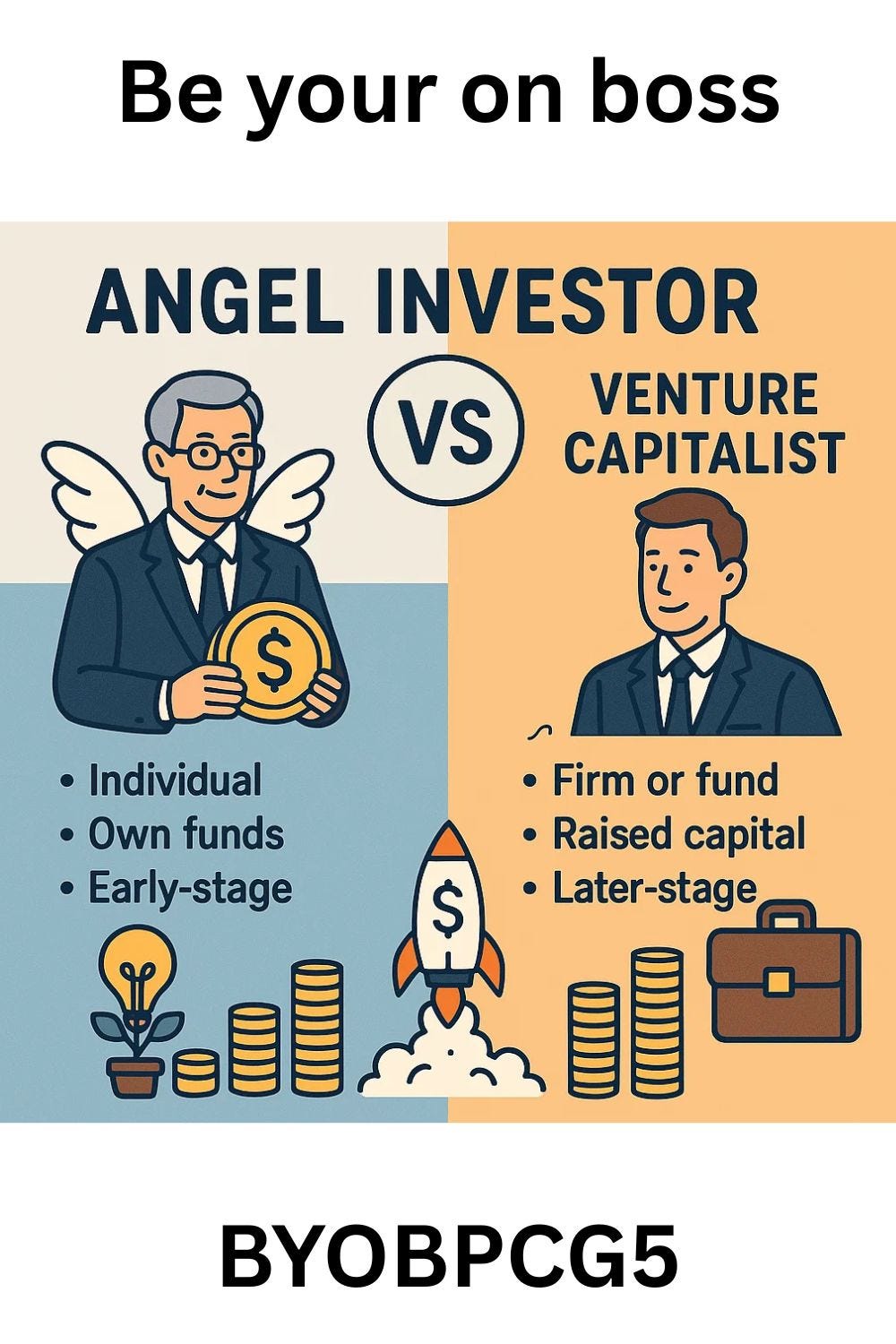Medium
2w
156

Image Credit: Medium
Angel Investor vs. Venture Capitalist: Which One Should Your Startup Choose?
- Angel investors are high-net-worth individuals who invest their own money into startups at the seed or pre-seed stage.
- Investment Range: $25,000 — $500,000. Stage: Early (pre-revenue or prototype phase).
- They focus on high-risk investments, offer hands-on mentorship, and networking opportunities.
- Successful startups like Google and Uber received initial funding from angel investors.
- Venture capitalists are professional investment firms that pool money from institutions.
- Investment Range: $2M — $10M+. Stage: Growth (usually Series A and beyond).
- VCs seek startups with proven traction, provide strategic guidance, connections, and expertise.
- Choosing between an angel investor and a VC depends on the startup's stage, funding needs, and goals.
- Many startups start with angels and later move on to raise VC funding as they grow.
- Angel investors bet on the founder's vision, while VCs focus on rapid scaling and exits.
- Angel investors offer quick funding with flexible terms, while VCs demand higher equity and stricter terms.
- Both angels and VCs play essential roles in the funding ecosystem for startups.
- Ultimately, the choice between an angel investor and a VC is influenced by the startup's specific circumstances.
- The decision involves considering factors like funding stage, risk appetite, and long-term objectives.
- For further comparison between angels and VCs, resources are available for an in-depth analysis of the options.
- While angels fuel early-stage dreams, VCs provide the resources needed for rapid growth.
- Startup founders are encouraged to weigh their options carefully and consider their funding journeys.
- Engagement is encouraged by inviting entrepreneurs to share their funding experiences in the comments.
Read Full Article
9 Likes
For uninterrupted reading, download the app